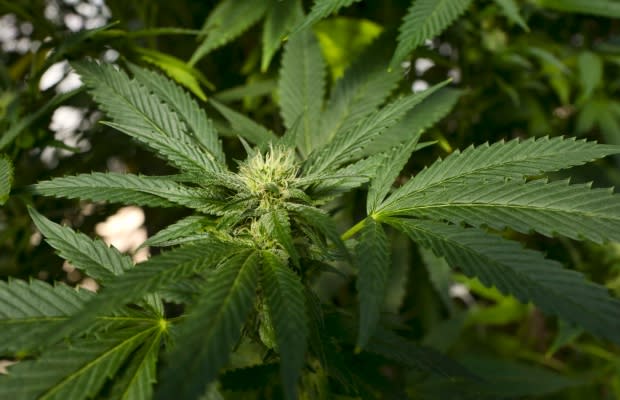Scientists brew up cannabinoids using genetically-modified beer yeast
Researchers from University of California, Berkeley, say they have produced low-cost and high-quality cannabinoids out of brewer's yeast which could aid creating more medical uses for cannabis.
Manufacturing cannabinoids, like THC (the chemical in cannabis that gets people high) and CBD (another chemical that is believed to have some medicinal qualities), out of yeast has been achieved before. But the group of scientists believe that their novel approach will be more environmentally friendly and cheaper for medical researchers to study and explore the potential uses of cannabinoids.
"There are chemical synthesis routes for CBD and THC, where you start and you do everything in beakers in a chemistry lab and the cost for producing THC or CBD is on the order of $40,000 to $70,000 US dollars per kilogram," said Jay Keasling, UC professor of chemical and biomolecular engineering at Lawrence Berkeley National Laboratory, and co-author of the study in the journal Nature.
"We know … that we'll be able to produce these molecules at less than $400 per kilogram … and we might be able to get down even cheaper than that."
Another advantage to using yeast, the researchers say, is that it will reduce the need for large-scale greenhouses that can take their toll on the environment, such as risking pesticide runoff into streams or putting a strain on watersheds.

Yeast, a fungus that acts as a fermenting agent in beer, for example, has been used to produce other types of medicine such as insulin and anti-malarial drugs.
In 2015, a German team of scientists announced that they had successfully engineered THC out of type of yeast. Though the amount produced was small, it heralded yet another use for the versatile fermenting agent.
And in 2016, Canadian biotech company Hyasynth also made a breakthrough using yeast.
How it works
In the production of beer, yeast converts its sugar into alcohol. But in the production of medicines, enzymes — which create biochemical reactions — are added that convert the sugar into other cannabinoids such as THC and CBD.
It took time and a lot of trial and error to figure out which enzymes to use to make the final product. But in the end, the process worked: it produced CBGA, considered to be the "mother" of all other cannabinoids. From there, researchers produced THC and CBD, amongst others.
Kevin Chen, CEO and founder of Hyasynth, sees the announcement as positive, but said he has reservations about the company's claims.
"It's a good starting point that he's got, but he hasn't published data on the timeline for when the product gets produced and then how it gets purified in the end," Chen said.

What has been published is proof of concept. Though the price is likely to be considerably cheaper than lab-produced cannabinoids, it's unlikely it'll be as cheap as $400 US a kilogram, he said.
"In the end, what you have to do is show that you've been able to produce the product and purify it at a scale that is relevant for industry," Chen said.
But Keasling said there was no need to produce it at such quantities "at the academic level." As well, there are guidelines set out by the U.S. Drug Enforcement Agency as to how much they are legally allowed to produce.
"Our job was to show the science works and that we can do this, and then let industry hone this and produce lots of it," Keasling said.
And that's the next step: the product has been licensed to a biotechnology company which Keasling started, called Demetrix. They are now industrializing the microbe and then working on scaling up production. He anticipates that some synthetic cannabinoids may be available to researchers within a year.
As for recreational use, what does Keasling see for his new product?
"I think that's up in the air. Clearly you could take this yeast and you could ferment it and could make 'cannabeer,'" he said. "So that could be done with it. Whether that will, I think that depends on how the market or public accepts something like this. It is a genetically modified organism."
However, he notes, it's something we're all familiar with.
"Most of us have had a glass of wine or beer and so we know yeast quite well," he said. "We've had bread. It's a well-known and safe organism."


